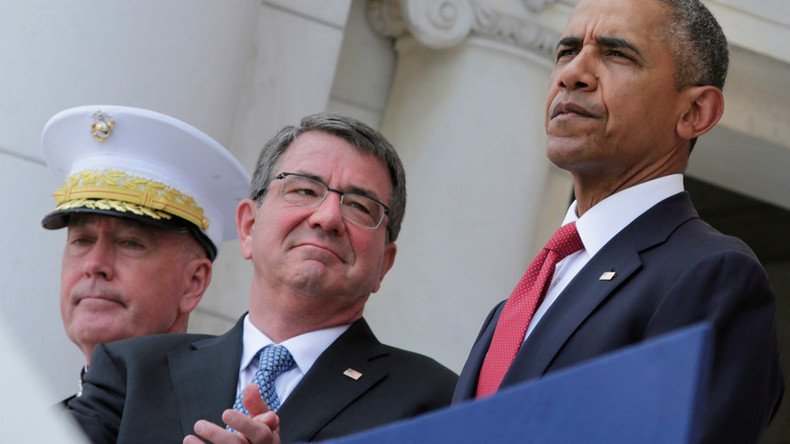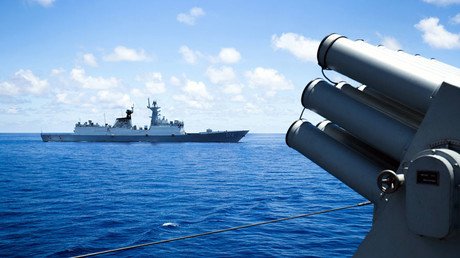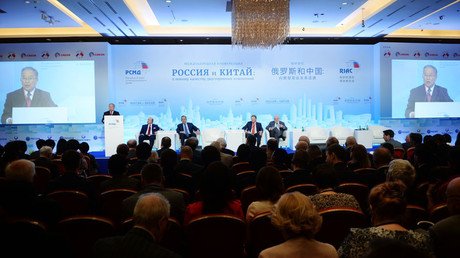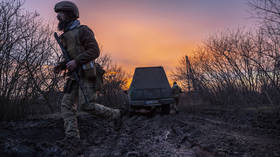Carter touts ‘principled security network’ for Asia, tells China to get in or be isolated

China is risking self-isolation from other nations of the Asia Pacific region, who are working closely with the US to build a NATO-like military alliance, which is a “principled security network” with America at its core, the Pentagon chief said.
Defense Secretary Ashton Carter said Washington, as “the primary security provider in the Asia Pacific” wants China to work with the network rather than be excluded over "expansive and unprecedented actions" in the South China Sea. The US official gave the warning on Friday at the Shangri-La Dialogue, a regional security forum in Singapore.
Unlike the North Atlantic region, the Asia Pacific “has never been managed by a region-wide, formal structure comparable to NATO in Europe,” Carter said. Instead, with the help of the US, regional powers have formed a security network built on bilateral, trilateral and multilateral agreements. Carter praised the security arrangement and the role played by America in forging it.
“The value of American engagement in the Asia-Pacific is irrefutable. And it is proven over decades,” he said, exemplifying deployments of advanced weapons like F-22 and F-35 stealth fighter jets, B-2 and B-52 bombers, strike submarines and surface warfare ships.
“The United States will remain, for decades, the primary provider of regional security and a leading contributor to the region’s principled security network.”
China’s inclusion would make it stronger, and the US would like to see that happen, the official said. But Beijing’s actions are going against the principles of this network, including the freedom of navigation and overflight, he said.
READ MORE: US plays down claims of ‘unsafe’ jet intercept, after China takes umbrage
“There is growing anxiety in this region, and in this room, about China’s activities on the seas, in cyberspace, and in the region’s airspace. Indeed, in the South China Sea, China has taken some expansive and unprecedented actions that have generated concerns about China’s strategic intentions,” he said.
“China’s actions in the South China Sea are isolating it, at a time when the entire region is coming together and networking. Unfortunately, if these actions continue, China could end up erecting a Great Wall of self-isolation,” he added.
China is one of several claimants for various islands in the South China Sea and considers them its sovereign territory. It demands that other nations treat the waters and airspace around them as Chinese. The US does not support any nation’s claims and insists that the entire South China Sea is international space.
The Pentagon has been sending warships and warplanes through the disputed areas do demonstrate its resolve in opposing Beijing’s claims. China considers such actions provocative and potentially leading to hostilities.
The US defense secretary said China should play “a responsible role in world affairs commensurate with its wealth and potential influence.”
“Together in a network represented by all the delegates in this room, we all can do so much. And the United States wants to work with China to find solutions for the global problems we’re both facing and seize the many opportunities before us,” he said.
Among the challenges that China should face as part of the US-backed Asian security network Carter mentioned “Russia’s worrying actions, North Korea’s nuclear and missile provocations, the threat posed by extremist groups, or the growing strategic impact of climate change.”
He added that there was a “growing need for an action-oriented, ASEAN-centric regional institution that builds trust, facilitates practical multilateral security cooperation, and brings the region together to meet these commitments.”














